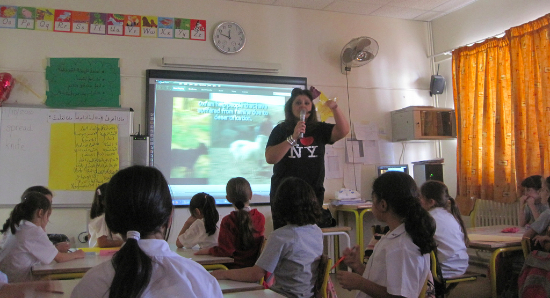Are We Asking The Wrong Question When We Focus on Educational Technology?
Education is the process whereby information is organised into knowledge and, with appropriate processing and experience may result in wisdom and therefore a happier, productive and less risky life. Both factual and emotional education basically use the same process and both require that, as well as the provision of information, the recipient has opportunity to interact with the information in different ways, and develop a multi-perspective ‘feel’ for the information so that it is not just perceived as an isolated, one-dimensional fact.
In my clinical experience as a Developmental Paediatrician I have always accepted Freud’s statement that ’the task of adults is to work and love’ and ‘the task of children is to play’. Children’s play is in fact a combination of work and love, and the way that children learn is through playing, which is always multi-dimensional. Children listening to a story only really remember the story when they begin to act it or make the teller act it, make faces like the characters, dress up, draw pictures and submit their toys to the events of the story.
Good teachers instinctively know these things and ensure that all sensory modalities are used to engage children in the learning (playing). Good teachers also know that children have large individual differences in whether auditory, tactile, visual or emotional pathways are their preferred way of processing information and foster the appropriate ones and the appropriate rate of learning for the individual child.
In my own experience of developing Computer Assisted Instruction (CAI) for medical students in the early 90’s, it became apparent that using CAI techniques alone produced a one-dimensional view of the topics taught. Students taught the interpretation of electrocardiograms (EKG or ECG) by CAI alone and tested by automated CAI methods, performed well in computerised testing but poorly when tested in clinical situations. Students who took both the CAI learning and a mentored course performed better than students who took either only the CAI or the mentored course.
The debate about which Educational Technology is appropriate for improving educational access is posing the wrong question. Children, particularly in disadvantaged situations, will benefit from provision of electronic information, but the provision of information alone will not result in them processing into knowledge, let alone wisdom. Educational technology must provide as many ways to interact with information as there styles of learning, and this can only occur if the teacher or mentor has a central role in finding out what a child’s learning style is, and then providing challenges that make the child interact with the information from different perspectives.
Despite being an early supporter and sponsor of OLPC and an enthusiast for CAI, I believe that our role as educationalists must be to ensure that whatever technology we provide for information presentation, we must keep the role of the teacher and mentor as the key and central component. This is particularly important as politicians and administrators will always support anything that reduces the cost of personnel, particularly if the technology can be packed with advertising propaganda, which means that big business can spread its’ very mixed messages and pay part of the cost.
We need to balance our wish for the widespread use of the delightful technologies that we have developed, with the reality that genuine life-long learning patterns can only be built on a basis of the centrality of the teacher as a mentor, monitor and orchestrator of childhood learning.
Stephen Wealthall trained as a Developmental and General Paediatrician in Sheffield, England and regarded teaching as his most important role. He was the founding director of Medical Education Development at the University of Auckland, New Zealand, where he established the first Computer Assisted Learning laboratory in Medicine.


Amen. And thanks.
Yes, we ask many wrong questions in education. It seems to me that our situation is like that of astronomy and physics in the period between Copernicus and Galileo, where there were dozens of competing models of the motions of the planets, none of them accurate. Copernicus was better than the others, but not good enough. In Galileo’s time many astronomers refused to look through his telescope, because they had theories that they interpreted to mean that what the telescope showed was false. It was Kepler who first worked out that planetary orbits are ellipses, and Newton who gave a mathematical derivation of that law from inverse square gravity. Resistance continued well into the next century.
We have a multitude of theories of education in general and on teaching particular subjects, none of them sufficiently accurate, and many demonstrably, even obviously false, but kept in play by political factors and unsupported certainties. I will only cite the ludicrous debate between phonics and whole word teaching of reading. In fact, English has hundreds of spelling and provunciation rules and hundreds of exceptions, so that effective reading teaching requires a blending of both approaches. I made some contributions to the PBS series Children of the Code, which explained some of these problems.
We also have educators who were and are able to achieve much better results than others, and to teach or even automate their methods, but who are roundly ignored in the educational Conventional Wisdom and the senselessly raging political battles around such topics as high-stakes testing, Creationism vs. Evolution, sex education, Global Warming, attacking teachers’ unions, public vs. charter schools, the textbook publishing oligopoly, and now the Common Core Curriculum.
We could be designing and carrying out meaningful experiments, and working on how to get the results into teacher training and common practice. In fact, I know of such experiments being carried out in India, Peru, Ethiopia, Nepal, Bangladesh, and other countries, with often startling results. But I can’t get anybody to listen. I have been offered funding to do such experiments, and have not been able to find a school system or teachers’ college willing to participate.